“Nothing is without meaning.” – Mariko
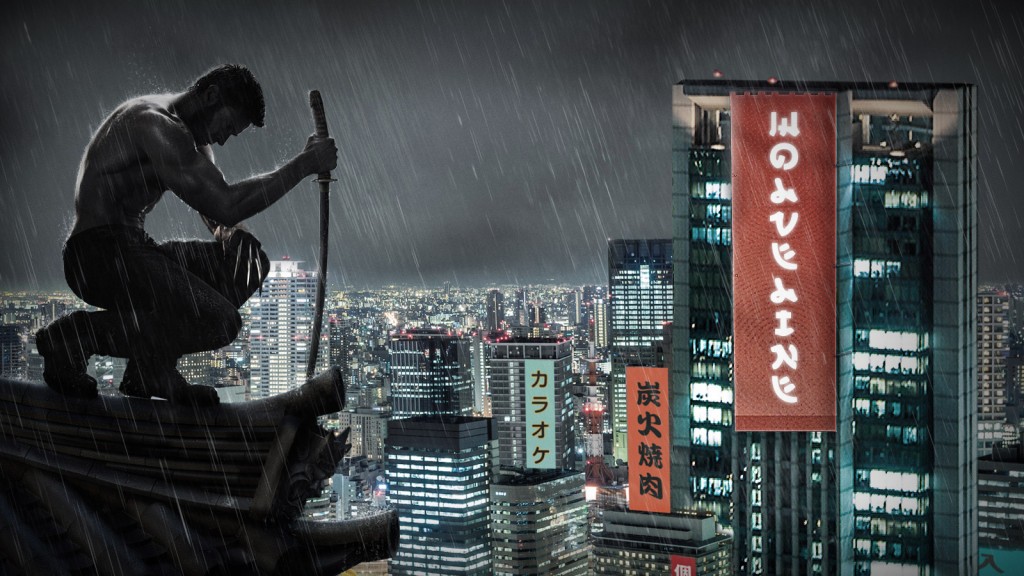 Hugh Jackman and James Mangold have finally given us The Wolverine solo movie we wanted four years ago. Although not a perfect film, it’s a far cry (or gutteral growl) from the Origins flick most fans merely endured, rolling their eyes and lamenting the muting of Deadpool. Working with a classic 80s Wolverine comic story, this time we see our clawed, cantankerous protagonist in a role similar to Clint Eastwood’s classic western anti-hero, a narrative wherein the central character is caught up in other people’s affairs, a lone gunman spaghetti western… or, in terms of the Japanese setting, perhaps sukiyaki western?
Hugh Jackman and James Mangold have finally given us The Wolverine solo movie we wanted four years ago. Although not a perfect film, it’s a far cry (or gutteral growl) from the Origins flick most fans merely endured, rolling their eyes and lamenting the muting of Deadpool. Working with a classic 80s Wolverine comic story, this time we see our clawed, cantankerous protagonist in a role similar to Clint Eastwood’s classic western anti-hero, a narrative wherein the central character is caught up in other people’s affairs, a lone gunman spaghetti western… or, in terms of the Japanese setting, perhaps sukiyaki western?
And so our claw-happy hero will carve his way through hicks, Yakuza, and ninjas like they were green eggs and ham: he will stab them in a bar, or on a train, or in a Pachinko parlor. Perhaps in the snow, or on the go, and so on. And then he’ll stab giant robots because, well, comics. The third act leaves the more grounded confines of the first ninety minutes and will lose some people, but I enjoyed the shifting allegiances and revelations some wrote off as problematic. I think if one takes a moment to think about eastern culture, its view of honor, and the complexity of peripheral characters, it holds up. Unlike the creative poster campaign, characters are not black and white. As the story opens, we see it’s fitting that the tale harkens back to Eastwood’s Man with No Name, since Logan has rejected his “Wolverine” moniker.
“That’s not who I am anymore.” – Logan
Following in the wake of X-Men: The Last Stand, Logan is tired of killing and haunted by dreams of the woman he loved… and killed. Just as we found Tony Stark this year dealing with post-traumatic stress in the wake of The Avengers battle (Iron Man 3), Logan is equally tormented in the wake of the X-Men trilogy. The story goes further, delving into territory that is perhaps more familiar to vampire movies or Highlander. To quote the Queen song from that 80s Highlander soundtrack:
“Who waaaaants to live foreverrrrr? (crazy guitar squeal!)“
Personally, I’ve always found this aspect of vampire movies – and Highlander – troubling. I mean seriously, why are these immortals decapitating each other over centuries just to earn the right to lose the longevity we covet? Then we have vampires, whining like emo-goth schoolboys about how “eternity is a curse”. Woe is me… I don’t have to wear adult diapers, I still have all my teeth. The man having his midlife crisis, or the seventy-year old losing his faculties in the nursing home, might beg to differ. Even a humanized Lestat whined like this in Anne Rice’s Tale of the Body Thief. Mortality blows. Ever the hypocrite, however, I’ve empathized with Connor McCloud, Louis, Lestat and Logan at various points in my own life. It doesn’t take an immortal body or soul to have a season where living has lost its luster. Yashida, the man who bids Logan visit him in Japan puts it succinctly:
“Eternity can be a curse. The losses you have had to suffer… a man can run out of things to care for, lose his purpose.”
Is this why some men retire and have heart attacks the subsequent week? They ran out of things to care for? They lack purpose? This doesn’t have anything to do with living over a century, because for some men it takes less than 40 years to lose these things. Wolverine has been battered down seeing loved ones die, and ultimately suffers not from a case of eternal life, but a terminal condition of believing he can never be forgiven for the things he’s done in that life. This is why Master Yashida offers Logan a chance to be mortal again, suggesting the Wolverine’s power can be siphoned off and given to someone who might have what it takes to live forever. But can anyone muster this strength of will?
“All things are full of weariness; a man cannot utter it; the eye is not satisfied with seeing, nor the ear filled with hearing. What has been is what will be, and what has been done is what will be done, and there is nothing new under the sun.” – Ecclesiastes 1:8-9
Logan’s weariness is an ancient outcry, a lament of literally biblical proportions as evidenced in King Solomon’s writings above. It’s the misspent lifetime of Citizen Kane, the narrative notion of “life under the sun” I deal with at length in the Cinemagogue book and we experience in half the stories of our culture. Is long life a curse? Do we eventually realize it has no meaning? Having a comic book character grapple with this gravitas gives this entry in the mutant saga more heft than other films, grounding it in the mud and the mundane. As Mangold slows down time and we feel a changed Logan receiving a mortal beating, it’s a poignant moment. Still, Yashida seems to think that – with the right vision – eternal life has value. So did the lamenting Solomon:
“I have seen the business that God has given to the children of man to be busy with. He has made everything beautiful in its time. Also, he has put eternity into man’s heart…” – Ecclesiastes 3:10-11
Do we have eternity in our hearts? Or is the best we can hope for a meaningful death? And what exactly IS a meaningful demise? Yashida is correct in that Wolverine has been craving a ticket off life’s train – suicide by superheroics, perhaps? The deceased Jean Grey beckons in dreams that he join her in death. The film deals with whether or not Logan can reconcile his issues and find a reason to live again. However, a character in the third act provides a shocking challenge to his present frame of mind:
“You think life without end has no meaning, but you’re wrong… it’s the ONLY ONE THAT DOES.”
This profound statement from the mouth of an antagonist actually contains a LOT of truth. In the grand scheme of things, what is a “meaningful death” in a world where we go to ground, and that’s it? The dead won’t remember or retain any satisfaction in it, and resonance felt by friends or those around them fades fleetingly, until our species – our planet, our universe – eventually goes the way of the dinosaur. The random universe winds down, and a cosmos ignited via meaningless chance ends in a meaningless stillness.
And no credits roll at the end, because that would imply an eternal objectivity over our shared story. Right?
Ah, but if life IS eternal… if we do go on… if we ARE part of a grand narrative, then and only then can life have objective meaning. We might not have healing factors, but if a component of who we are is truly eternal – linked to an eternal storyteller, perhaps – then life has true and deeply implicating meaning. Then we, like Logan, are left facing that eternal future with all the things we’ve done, all the blood on our hands, wondering if we can be forgiven for all the pain we’ve caused. Of course, we know Logan’s killing of Jean was a mercy, for her and others, and that he’s blaming himself for a necessary act (though some would dispute whether the entire third X-Men movie was a necessary act). So why is our anti-hero in such internal agony?
“Do not lay up for yourselves treasures on earth, where moth and rust destroy and where thieves break in and steal, but lay up for yourselves treasures in heaven, where neither moth nor rust destroys and where thieves do not break in and steal. For where your treasure is, there your heart will be also.” – Matthew 6:19-20
Ultimately, The Wolverine is racked with pain and loss because he’s rusty, and everything around him is moth food. His reasons for living were earthly loves, tangible treasures, all destined to fade with time. While loving some fellow humans isn’t inherently wrong, it’s not root: Logan’s heart, his foundation, is not rooted in anything eternal, even though he himself IS eternal. There’s the problem. He lacks everlasting connection, immortal vision, and so wanders like a man with no name, at best taking on the moniker of a berserker animal others have given him.
The film gives Logan an afflicted heart, makes him look into the abyss of mortality, and cuts him to the bone… but stops short of definitively answering why life is worth living. Maybe that’s where the movie ends, and we pop our claws to take a stab at the answer. It’s not an answer found in mutant genes (or mutant Jeans) but in the greatest story of everlasting love. Apart from God, Mariko’s assertion that “nothing is without meaning” is wishful thinking.
“So we do not lose heart. Though our outer self is wasting away, our inner self is being renewed day by day. For this light momentary affliction is preparing for us an eternal weight of glory beyond all comparison, as we look not to the things that are seen but to the things that are unseen. For the things that are seen are transient, but the things that are unseen are eternal.” – 2 Corinthians 4:16-18


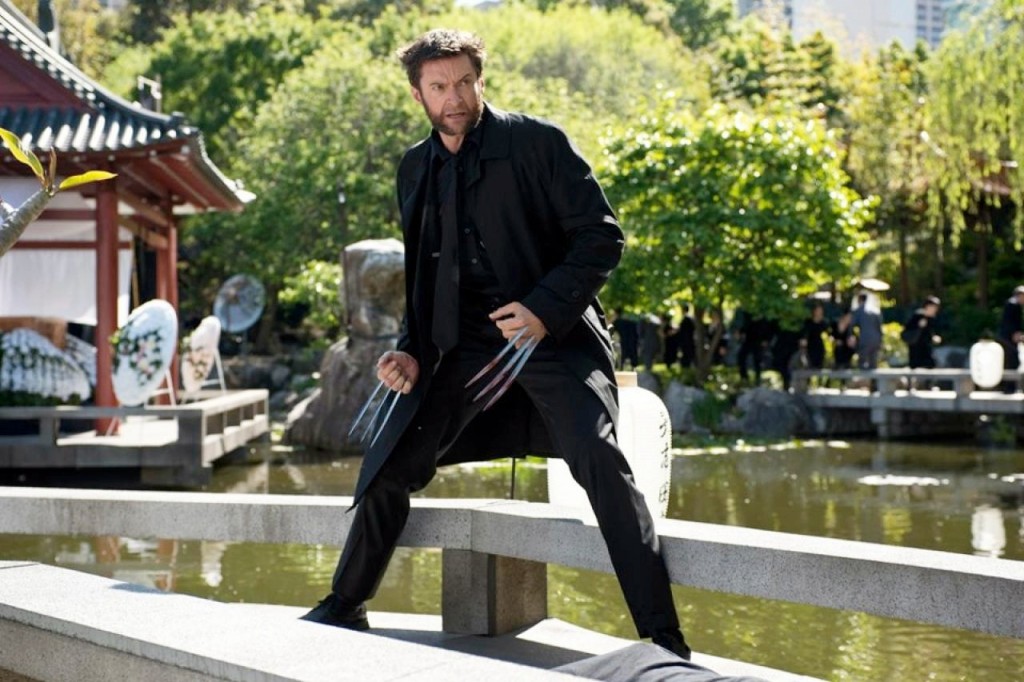
![The Wolverine- International Trailer -www.infimovies.com[19-37-33]](http://cinemagogue.com/wp-content/uploads/2013/08/The-Wolverine-International-Trailer-www.infimovies.com19-37-331-1024x444.jpg)
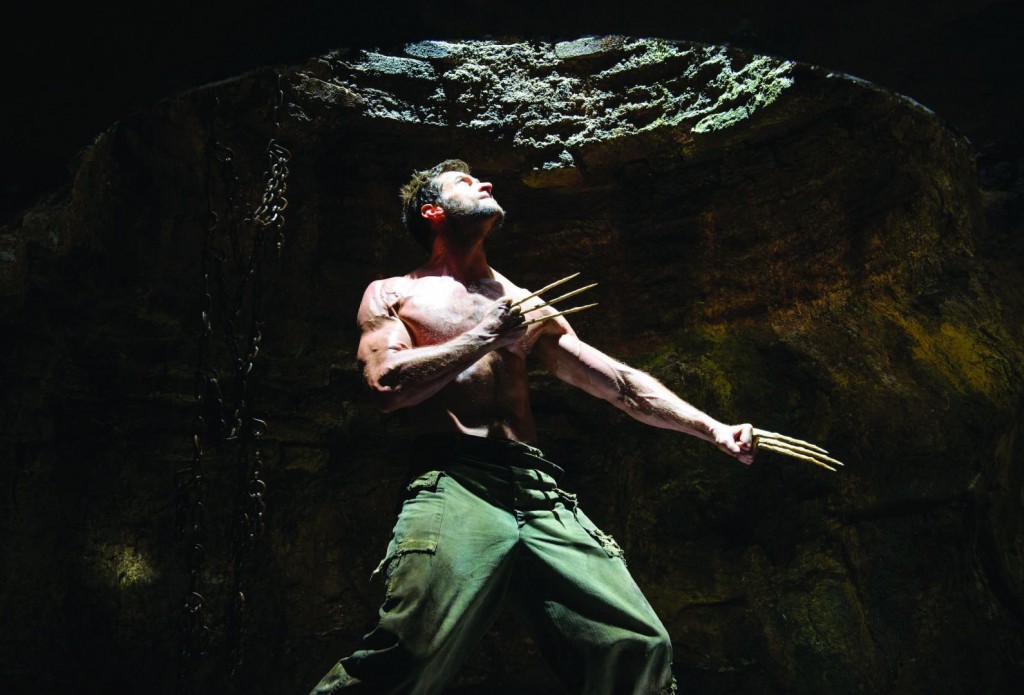
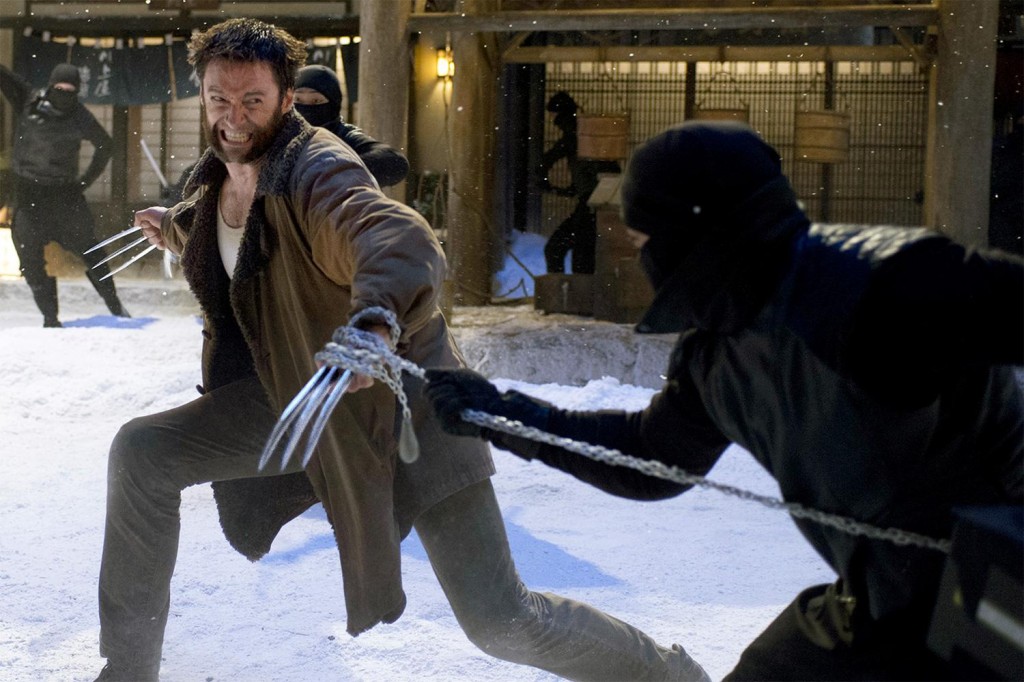
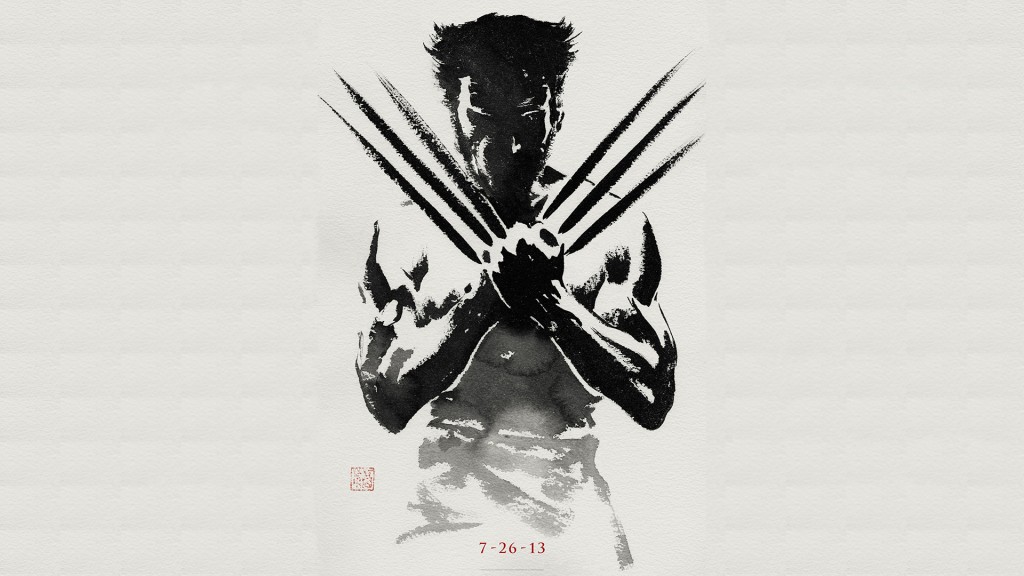
[…] NOTE: Wolverine stabs a LOT of people. Just go back and watch X2, or read any number of Wolverine comics. However, as the new film opens, The Wolverine has given up his life of howling and claw-popping. “That’s not who I am anymore,” he insists. Of course, by Act 2 of the new flick he’s sticking adamantium holes in gangsters and ninjas… and he does it everywhere. For some reason I connected this with Dr. Seuss’ poem Green Eggs and Ham, where Sam (I am) goes from not wanting to eat them to eating them everywhere. Thanks to some playful egging on by friend Mikey Fissel over at Reel World Theology, this is now the result. For the REAL Cinemagogue examination of The Wolverine, click here […]